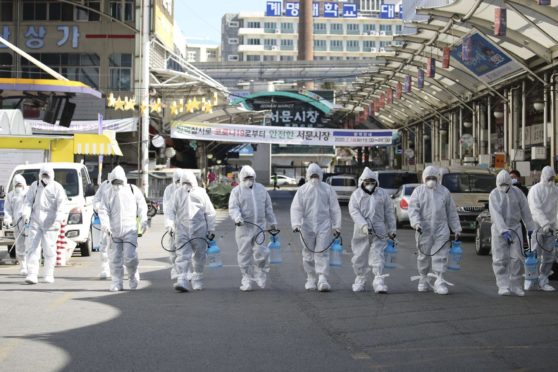Sir, – It is clear the UK as a whole and Scotland’s coronavirus containment strategy has failed.
If the vaccination program does not reduce the number of cases soon there could well be huge discontent by the general public.
I have commented upon South Korea’s response several times previously and am afraid will again.
The total number of cases is 69,651, with 1,165 deaths.
Today there were 537 cases and 25 deaths.
It makes the UK look like a disaster area.
I am, of course, in South Korea and the response here was better because:
1) Entry testing from April.
2) An effective self-quarantine system was put in place.
3) Effective tracking and tracing was put in place
4) Overseas holidays were stopped, mainly due to quarantine on return
5) Testing was made available to anyone on request.
The UK could have done some or all of these but chose not to do so.
There has been no restriction on freedom of movement here at any time but people do generally follow the government rules.
There are of course restrictions, particularly in the leisure/hospitality field but public transport has been working normally throughout and the economy is beginning to recover.
When a case is identified details of where they have been and times are sent by SMS to all mobiles in the city and if anyone was where the case was at that same time they are invited to have a test.
Recently the “English” virus is getting a lot of adverse publicity here.
John McKay.
Busan, South Korea.
Nothing but hot air in drugs response
Sir, – I see that the first minister is to chair yet another forum on how to combat the drugs epidemic, including, paradoxically, decriminalising the consumption of the very substances which are killing people.
Thankfully, this forum will probably be like all its predecessors and come up with nothing, which will in itself save lives.
However, as proof of their good intentions perhaps the attendees might agree to be tested for traces of drugs as they enter the chamber.
Now that deaths are reaching epidemic proportions, politicians feel they must demonstrate their concern by holding more conferences.
In the face of the coronavirus epidemic they have generated vaccines, track and trace programmes and isolation plans as a matter of urgency.
In the face of the drugs epidemic, for years they have generated nothing but hot air.
George Dobbie.
Airlie Street, Alyth.
Crusade to improve mental health
Sir, – As children and young people return to being home-schooled, there is no doubt that this will have a continued detrimental impact on mental health and wellbeing.
As a coalition we applaud the Scottish Government’s greater investment in mental health services. However, a view we share with other organisations, is that this investment is simply not sufficient.
Mental health services were already under immense strain prior to Covid-19, with children waiting considerable lengths of time for support.
Recent statistics from December, for example, point to more than 1,000 children who have been waiting over a year for treatment.
This pandemic will only serve to make matters even worse as services deal with those already suffering from mental health problems and those who have developed problems in lockdown.
What is needed is a national crusade, bringing significant investment in the public, private and third sectors to deliver adequate mental health support, both during and as we recover from Covid.
We must also use this as an opportunity to radically transform our mental health services, refocusing on prevention and early intervention.
In the meantime, we would urge those children and their families who feel they need help not to hold back and look to get the support they need.
The Scottish Children’s Services Coalition.
Queen Street,
Edinburgh.










